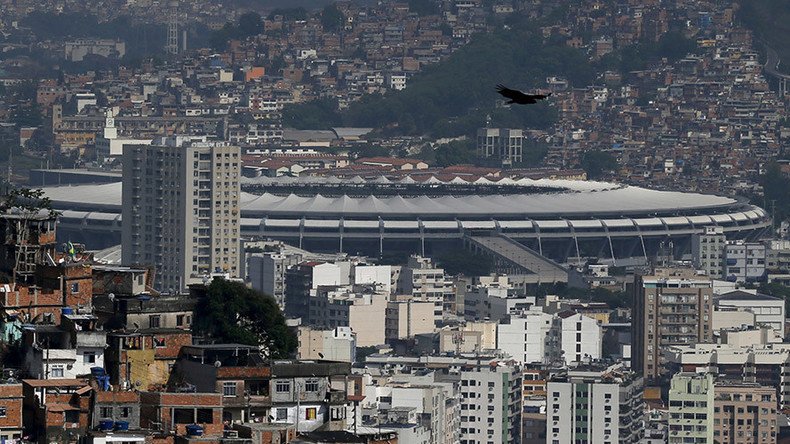Budget cuts and raw sewage crippling Rio 2016 preparations

With the start of Rio 2016 just months away serious doubts remain over Brazil's suitability to host the Olympic Games, with budget cuts of over $500m and pollution issues affecting preparations.
Recent testing of the waters around Rio de Janeiro has discovered they are heavily and dangerously contaminated, even as far as one kilometer out to sea.
These tests are the second to uncover problems with the water, with an investigation in July finding it had disease-causing virus levels 1.7 million times higher than what would cause extreme alarm in Europe or the USA.
Rio promised to clean up the city's sewage system ahead of the Games, but officials now say these promises will not be kept.
More than 6 percent of rowers competing in a junior championship event in Rio in August fell ill after being exposed to the waters, while Olympic sailor Erik Heil was hospitalized to treat the flesh-eating superbug MRSA, after a test event.
READ MORE: Russian athletes may miss Rio Olympics after doping suspension accepted
The latest tests showed the levels of contamination further out were just as bad as the ones close to sewage sources. A virus count of 1,000 per liter would cause beach closures in the USA or Europe, but at each of the off-shore testing sites the levels were 30,000 times above that.
The Olympic organizing committee denied there was a problem, saying the Rio waters were given regular microbial tests and fell within safe levels defined by the World Health Organization.
Financing the Games remains an issue, with organizers looking to cut over $500 million in costs to balance the $1.9 billion operating budget.
Mario Andrada, spokesman for the Rio Games, said even cutting air conditioning in athletes' bedrooms was a possibility.
"We don't think it's going to be critical (to have air conditioning) there," he confirmed.
Although the Games will be held in August during the South American winter, extreme temperatures are still possible. In August this year a temperature of 35.4C (95.7F) was recorded.
Rio's Olympic organizers are being hit by a deep recession, a big fall in the value of the local currency against the dollar and 10 percent inflation.
There is also a spreading corruption scandal involving state-run oil giant Petrobras that has triggered impeachment proceedings against Brazilian President Dilma Rousseff.
"We are discussing with our partners, especially the IOC, what kind of levels of service we can reduce," Andrada said. "The cutting hasn't been painful so far, but it will be from now on because we need to finish the process."
Employment numbers at the Games have also been reduced by 10 percent in a move that will please those asking why Brazil has 'wasted' over $20 billion on last year's World Cup and the Olympics.
Thomas Bach, International Olympic Committee (IOC) president, has tried to change the view that the Games are too expensive, thanking organizers for their efforts in balancing the books.
The IOC contributes about $1.5 billion to the operating budget.
Andrada said sports would not be affected by the cuts: "As long as we don't compromise the Games, the quality of the competitions, the experience of the public - then we have to look for efficiencies."
He said a $700 million 'contingency fund" backed by the federal government in the original bid document could still be used as a bailout, with the IOC stipulating host countries must make up any budget shortfalls.
"We haven't been told that the government won't put up the money," Andrada said. "The $700 million is a commitment the government made in the contract, so it's for the government to decide."
Powering the Games is a further problem, with no contract in place as yet for the supply of electricity. The IOC said "we expect the Brazilian organizers to deliver" on energy provision.
Andrada confirmed the delays were linked to Brazil's bureaucracy, particularly the politics and corruption scandals.
"This is a problem that should have been fixed a while ago," he said. "We will have energy. Don't get scared."













